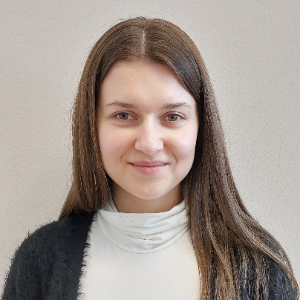Title : Upcycling of plastic to carbon black and H2-rich gas
Abstract:
This research investigates an approach for the sustainable conversion of plastic into valuable products, with a specific emphasis on the production of hydrogen-rich gas for prospective use as a clean fuel and carbon black as a promising catalyst support material. The study encompassed three distinct stages: plastic material characterisation, experimental bench preparation – the upcycling of plastic material into both solid and gaseous products, and analysis of the generated products. The initial stage involved a comprehensive characterisation of the plastic samples, providing crucial information about their composition and thermal properties. Subsequently, to separate two primary elements in plastics (C and H) and generate valuable products, samples were devolatilized and these intermediate volatile products were cracked afterwards to obtain solid carbon and H2 gas within controlled and optimised conditions. The produced carbon was characterised using techniques generally applied for carbonaceous materials to be used as catalyst support, namely, Thermogravimetric Analysis (TGA-DTG), Scanning Electron Microscopy (SEM), Brunauer-Emmett-Teller (BET) analysis, Inductively Coupled Plasma (ICP) and Raman spectroscopy. In conclusion, the results obtained in this study contribute to the advancement of sustainable technologies for plastic waste management by upcycling it into high-value materials and thus have a prospect for contributing to the development of the circular economy.
Audience Take Away
- The audience will learn about the thermal properties of plastic and what are the main constraints of a such C-rich material conversion to solid carbon as a multifunctional product.
- In this presentation an up-to-date technology will be introduced, by which avoiding the use of very harsh process conditions or a catalyst, plastic was upcycled into solid carbon and H2 gas.
- The technology which was used for plastic conversion can be applied to different kinds of organic waste conversion, thus it is qualified as universal and simple.



